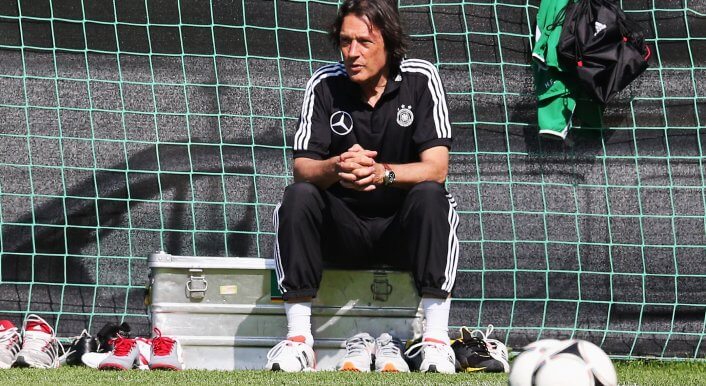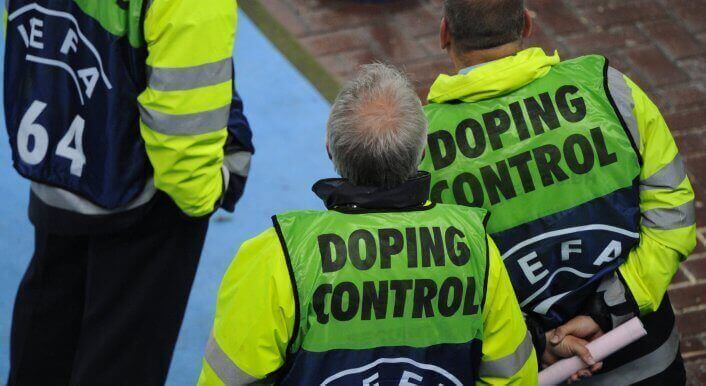Doping is useless in football? That’s a myth
Doping is useless in football, because the technical skills are too important. Do you believe in this explanation – or is it a myth?Perikles Simon:

Doping-expert Perikles Simon feels certain: Football has a use for a lot of different drugs. The sports scientist assumes that especially players who have a good technique but bad stamina are vulnerable for the temptation of taking performance enhancing drugs.
Doping is useless in football, because the technical skills are too important. Do you believe in this explanation – or is it a myth?
Perikles Simon: That’s a pure romance. The guys who tell this myth do know that, too. They just have to look at baseball, which is also a very complex sport. The physical amount in baseball is lower than in football. Nonetheless baseball has a huge drug-problem, a lot of players took steroids. A physically even more pretentious sport like football has definitely a problem with performance enhancing drugs.
Some people say drugs damage players performance, because other skills could be damaged.
Simon: On the contrary. For example stamina: Different performance diagnostics show us, that the stamina of professional football players is limited by the different physical requirements. Football players have to move really fast in every direction, so there is a limit of endurance, which can’t get better through training any more. At least a better endurance through more endurance-training would affect other physical skills badly. That’s really perfidious, because so performance enhancing drugs to strengthen the overall stamina would be very effective. This is dangerous, especially for young players with very good technique. If a young player is good at the ball, but his stamina isn’t good enough for an international tournament, the temptation to take drugs may be really big.
Which drugs do make sense for professional football players?
Simon: All drugs. The sense is questionable, of course, you pay for every drug you take somehow or other. But particularly in recovery it would be helpful for a lot of players to gain muscles as fast as possible. So they may use steroids. Also for the stamina there is a range of drugs and doping-methods. With peptide hormones you can prolong doping-effects into the game itself. Dwain Chambers, the british sprinter who doped, named dozens of substances in his book. You have to assume that all these substances are as well relevant for football players.
In German Bundesliga there are no blood-tests and even in training-camps there are hardly any drug-tests. How big are the gaps of drug-tests in football?
Simon: I would say these gaps are enormous. Especially if you consider how these test are realised. Before the World Cup 2010 in Souh-Africa the FIFA said very clearly when the tests will be taken. Some experts sat together and told the teams afterwards: Within these weeks we’ll come around to take the tests. You can completely forget these kind of tests. That’s pure waste of money. You catch the idiots, no one else.
Why does football have such big gaps in his testing program?
Simon: There are multiple reasons. To start with the positive interpretation – without alleging purpose – I want to name the international heterogeneity. How do you want to make sure that a team from North-Korea is available 24/7 for doping-tests? That’s not possible. So teams have to be available for tests for a certain timeshift before big tournaments like World-Cups. These argument is as if you would say: We have to keep using nuclear energy, because everyone else does. Europe could sheer out and say: We are doing unannounced tests in football, we are doing tests far before European Championships at physically relevant dates when players don’t assume any tests.
You just said you are starting with the positive interpretation. What’s the negative?
Simon: Negative is the impertinence how football brags about its negative tests to the public. FIFA says it has 30.000 tests: Watch us, nearly all are negative. With these statistics they declare a doping-free football. But that’s not possible with announced, unintelligent tests.
From time to time there are positive tests, there is the affair of Juventus Turin, stories around drug-doctor Eufemiano Fuents. Why are there hardly any public discussions about drugs in football?
Simon: They don’t want to discuss it. The majority doesn’t want to watch the problem to closely. The turin affaire where a whole team got drugs systematically should have been a cause for more investigations. Turin was like cycling and it should have been asked: What does this mean for the health of the players? If you judge sports as a cultural artifact and you are a democratic, enlightened state, you have to care about your elite, even in football. You can’t rise the financial pressure on players to the maximum and then assume that they will take care of their health. If teams are able to install an all-involving doping-system, the pressure seems to be so high that players aren’t able to refuse to accept the drugs. Then we have inhumane working conditions.
Perikles Simon is one of the best-known doping-experts in Germany, he is a consultant for the World-Anti-Doping-Agency WADA on the field of gene-doping. At the university of Mainz he is chief of the department for sports medicine.



